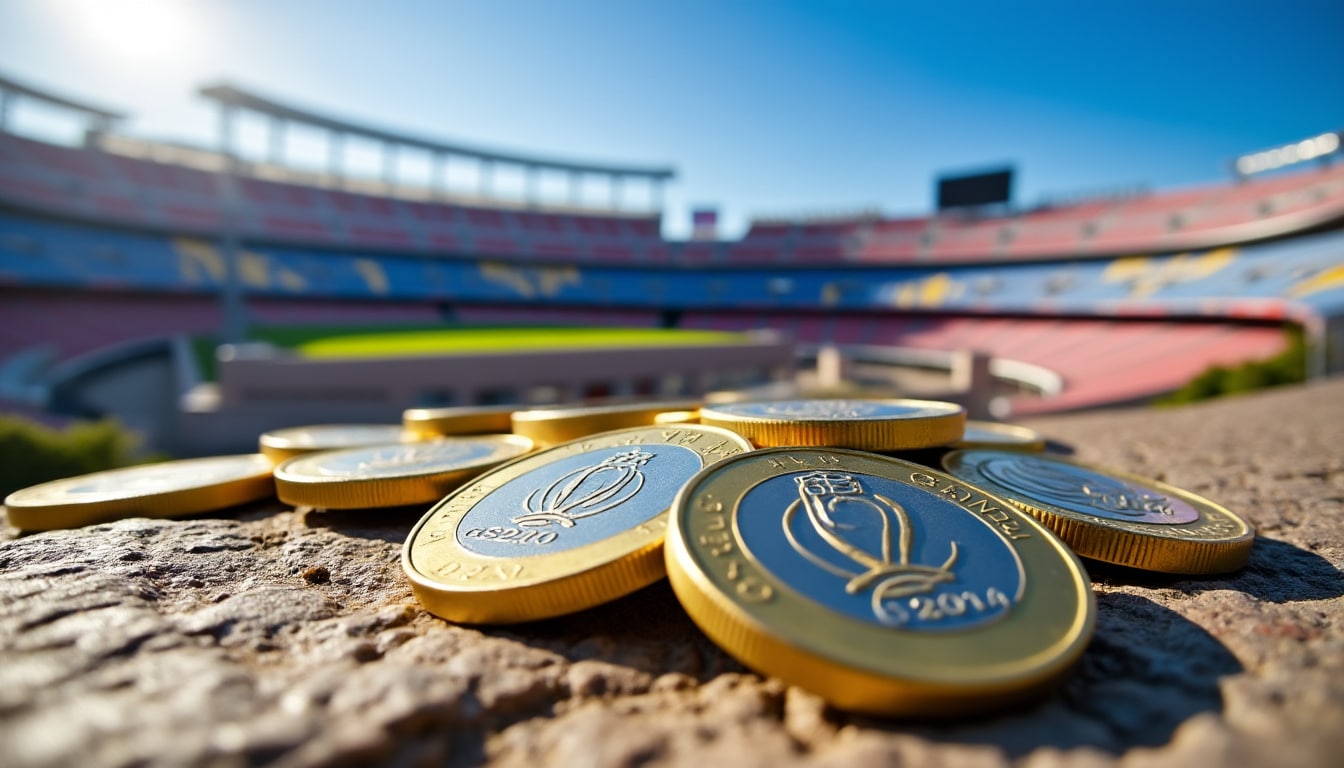Barcelona—a city renowned for its stunning architecture, vibrant culture, and bustling beaches—welcomes millions of visitors each year. Amid the buzzing Las Ramblas or while exploring the surreal structures of Gaudí, understanding how to manage money effectively is crucial for a hassle-free experience. Visitors often wonder about the currency, the best exchange options, and the payment methods suited to the vibrant heart of Catalonia.
Understanding the Currency: Euro (€) Usage in Barcelona
The official currency used in Barcelona is the Euro (€), just like in the rest of Spain and 19 out of 27 European Union countries. Familiarizing oneself with the various Euro notes and coins can significantly improve your transaction experience. The Euro is broken down into cents, with 100 cents making up a single Euro. Coins are circulated in denominations of 1, 2, 5, 10, 20, and 50 cents, alongside 1 and 2 Euro coins, while notes range from 5 to 500 Euros.
Understanding exchange rates is vital, especially given the fluctuating nature of global currencies. Before embarking on your journey to Barcelona, consider using reliable online currency converters like XE.com or Google’s currency converter for the most up-to-date exchange rates. These platforms use the mid-market rates, a benchmark widely acknowledged as the fairest rate, sitting between the buy and sell prices of two currencies.
Barcelona offers several avenues for exchanging your currency. ATMs scattered around the city, particularly in major banks like CaixaBank, BBVA, and Banco Santander, often provide the best exchange rates, surpassing those of currency exchange bureaus. However, it’s wise to consult your home bank about potential international withdrawal fees and inform them of your travel plans to avoid any hiccups like blockages due to suspected fraudulent activity.

For individuals who prefer handling cash, reliable currency exchange bureaus abound in Barcelona. Notable names include Ria Currency Exchange on La Rambla, Exact Change near Av. de la Catedral, and Money Exchange at Carrer de Mata. While these options offer competitive rates, caution is advised when considering exchanging currency at airports or hotels due to their typically unfavorable rates.
Tips for Using Euros Wisely in Barcelona
- 💡 Always have a small number of coins for minor purchases and public transport.
- 🔍 Double-check exchange rates—stay informed with live updates through apps or sites.
- 📍 Choose ATMs from known banks to reduce chances of overcharging.
- 🚫 Avoid airport exchanges unless absolutely necessary.
Navigating Payment Methods in Barcelona
Whether at a picturesque tapas bar or an avant-garde art museum, knowing the available payment methods in Barcelona can significantly enhance your visitor experience. Credit and debit cards, particularly Visa, Mastercard, and American Express, are widely accepted across the city. However, some smaller businesses might require a minimum spend—typically around €10—before card payments are possible. Be aware of potential foreign transaction fees and check with your bank beforehand to avoid surprises.
Innovative payment solutions are reshaping the financial landscape globally, and Barcelona is no exception. Prepaid cards offer a flexible alternative to traditional methods, allowing travelers to preload a set budget, often at the real exchange rate sans extra fees. Should you misplace your card, there is comfort in knowing a replacement can be arranged swiftly. Furthermore, digital wallets such as Apple Pay, Google Pay, and popular alternatives like PayPal, Revolut, and TransferWise provide convenient tap-and-go solutions, increasingly embraced by merchants in the city.
For those who prefer cash, fear not, as ATMs are omnipresent. Moreover, banks generally operate six days a week (exceptions may apply) from 8:30 AM to 2:00 PM, with limited afternoon hours on Thursdays. This accessibility makes managing financial needs straightforward for both tourists and residents.
Comparing Payment Options: Cards vs. Cash
| Payment Method | Pros | Cons |
|---|---|---|
| Credit/Debit Cards | Widely accepted, convenient, rewards | Foreign transaction fees, minimum spends at small shops |
| Prepaid Cards | Budget control, real exchange rate | Replacement needs if lost |
| Digital Wallets | Contactless, quick transactions | Not accepted everywhere |
| Cash | No fees, accepted everywhere | Risk of loss, no rewards |
Exchanging Money: Finding the Best Deals
Walking through bustling markets or lounging by the beach calls for reliable money exchange options to ensure you enjoy every moment in Barcelona without a hitch. The preference for exchanging money before traveling contrasts the convenience of doing so upon arrival, where ATMs and currency exchange bureaus are accessible. Each option presents advantages: pre-travel exchanges offer peace of mind, while local exchanges may offer better rates but require awareness of potential fees.
ATMs remain the preferred choice for many, offering the significant advantage of near real-time exchange rates that often trump those at exchange bureaus. Remember, however, to consult with your bank regarding withdrawal fees and pre-arrange your travel plans to avoid unnecessary financial transaction distress.
For those more comfortable with cash exchanges, several trusted bureaus operate within the city. Transactions through these typically result in a higher marginal cost relative to ATMs due to service fees, so explore online reviews and current rates before proceeding. Wise, Fin.do, and N26 emerge as prime choices for online money transfers, offering competitive rates and quick turnaround times.
Choosing the Right Exchange Service
- 🏦 Prefer ATMs for the best rates when withdrawing cash.
- 🌐 Utilize digital services like Wise for overseas transfers.
- 🔁 Consider timing for the most favorable rates.
- 🌍 Fin.do for multi-currency transactions.
Banking Services and Options for Locals and Guests
In Barcelona, banking services cater to both short-term travelers and long-term residents. Opening a bank account might be advantageous if you plan a prolonged stay. Two main account types exist for potential tenants: resident and non-resident accounts. Resident accounts fit those planning to make Barcelona a home, while non-resident ones suit temporary visitors.
The path to owning an account demands identification such as a passport or NIE number, with additional documents based on chosen banks. Accounts can be held in Euros or alternative currencies, knowing that the latter may necessitate a preliminary deposit. Banks also provide direct debit services, a reliable way to manage regular bills efficiently.
Credit cards from various networks like Visa and Skrill facilitate cash withdrawals and are widely accepted across services like taxis and restaurants. Additionally, banks like Banco Santander extend support in multiple languages, enhancing ease for international clients.
Pros and Cons of Local Banking
| Aspect | Advantages | Disadvantages |
|---|---|---|
| Resident Account | Access to local benefits, flexible loans | More documentation required |
| Non-Resident Account | No taxes, easy setup | Limited access to certain loan services |
| Language Support | Multilingual assistance available | Availability varies by branch |
Sending and Receiving Money Efficiently in Barcelona
Sending or receiving money internationally involves a landscape of services, each suited to different needs. From sending money via established names like Western Union and MoneyGram to newer digital platforms like Stripe and Monzo, Barcelona offers ample options.
Wise stands out for its transparent fees and competitive rates, adhering to mid-market exchange standards. In contrast, Bizum provides an excellent choice for transfers within Spain, though its use is typically exclusive to those with Spanish bank accounts. Options like Venmo make payments among friends or small transactions quick and effortless.
For tourists needing instant transfer services, considering Western Union or Square provides multiple city branches for easy access, albeit often with higher fees compared to online alternatives. Engaging with these services ensures stress-free financial transactions for both long and short-term stays.
Choosing a Money Transfer Service
- 📧 Wise: For low-cost, transparent international transfers.
- ⚡ Bizum: Ideal for local, rapid transactions.
- 🏢 Western Union: Suitable for offline, quick cash pickups.
- 🔗 Venmo: Convenient for peer-to-peer payments.
FAQs
Enjoying your stay in Barcelona means ensuring informed decisions about finances. Here are common questions about money management in the city:
- What is the preferred currency in Barcelona? The Euro (€) is the official and widely-accepted currency.
- How can I get the best exchange rate? ATMs tend to offer better rates compared to exchange bureaus and hotels.
- Are credit cards accepted everywhere? Major cards are widely accepted, though carry some cash for small businesses.
- Is tipping necessary in Barcelona? Tipping is appreciated but not obligatory, with 5% to 10% being customary for commendable service.
- Can digital payments be used? Yes, digital wallets such as Apple Pay and Google Pay are increasingly accepted.

